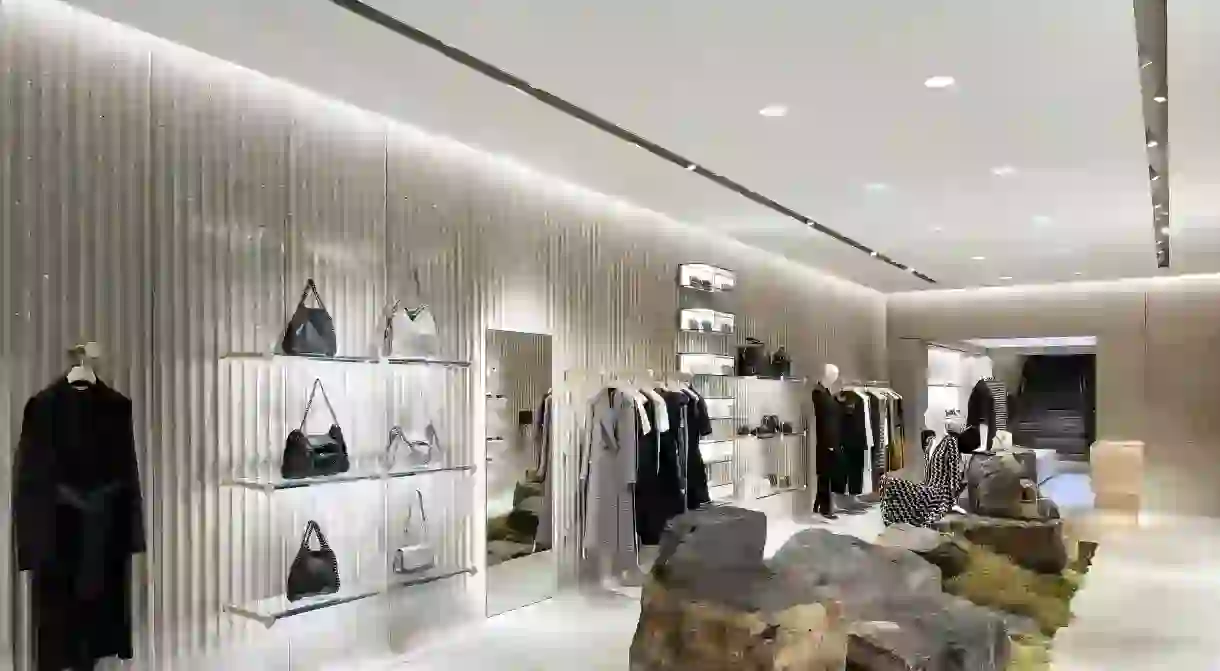Stella McCartney Will Always Be the Queen of Sustainable Fashion

The fashion world is having a ‘moment’ with eco-conscious collections, but for British designer Stella McCartney, the concept is nothing new. McCartney’s recently opened flagship store in London is just the latest example of her forward-thinking take on ethical fashion – something she has been championing for almost 20 years.
Stella McCartney is fashion’s ethical-movement initiator. Since the launch of her eponymous label in 2001, she has spoken openly about her passion for supporting animal rights and has created luxury products without using leather or fur, proving that it can be done in a way that is “better for everyone – animals, people and the environment.”
But ethical fashion and sustainability have recently become industry buzzwords. Many high-street retailers have introduced eco-conscious lines, and Graduate Fashion Week showcased a significant number of ethically produced collections in 2018.

Given this context, it is hard not to view McCartney’s new Bond Street store, which features biodegradable mannequins, a wall made from recycled waste and an indoor rockery, as a reminder that the designer was committed to this idea decades before anyone else. Only someone with McCartney’s eco credentials could pump the cleanest air in London through the ventilation system of their store and call it ‘fashion’.
On nearby Regent Street, accessories label Bottletop is one brand following McCartney’s lead. Bottletop used a 3D printer to construct its shop interior from a mixture of recycled plastic and old car tires. It sells bags made from zero-deforestation leather, a result of the Novo Campo program. Novo Campo, which Bottletop founder Oliver Wayman helped develop, offers a way of recovering natural resources in Brazil while strengthening the local community. Wayman is pushing for greater transparency about where materials come from.

“Brands no longer have anywhere to hide with regards to supply chains,” Wayman says. “Consumers are becoming more aware of the harmful effects of fast fashion on our planet and there has definitely been a shift in the industry’s attitude of late.”
In the luxury fashion sector, it’s former Louis Vuitton leather-goods designer Kévin Germanier who is currently proving that eco-conscious fashion can be runway worthy. His namesake label first showcased at Paris Fashion Week in March 2018 and featured futuristic designs made entirely of recycled material. His approach is forward thinking and tongue-in-cheek, and it eliminates the idea of aesthetic restriction when working with second-hand fabrics.
https://www.instagram.com/p/BgN_ONzjfPI/?hl=en&taken-by=kevingermanier
With the rise of online retail, e-commerce brands are taking a slightly different approach to the idea, having no brick-and-mortar stores to act as marketing.
Voodism, founded in 2017, is one of the largest online directories for vegan fashion and lifestyle goods. Founder Hanna Cooper says that innovation in materials has played an important role in developing vegan fashion labels. Pinatex is one example. It’s derived from pineapple leaves, which can be used as a leather alternative for shoes and bags. “I hope that one day ‘vegan fashion’ will no longer be a buzzword – it will just be the norm,” Cooper says.
Graduate Fashion Week 2018, which took place at the beginning of June, suggests fashion is heading in a more ethical direction. The event spotlighted designers Sarah Seb and Rose Connor as part of its Talent of Tomorrow campaign, both of whom focused on ethical production for their final collections.

Connor melted, manipulated and sculpted mesh shower puffs into something significantly more glamorous. “My collection is about experimentation,” she says. “I took a throwaway household item and created something beautiful.” Seb worked with vintage items: “We don’t need to make more material, we have enough. People are afraid of wearing second-hand clothing but they shouldn’t be.” Both named Stella McCartney as an inspiration for their work.
So while the proliferation of new and exciting ethical brands is to be welcomed, it is worth remembering that Stella McCartney changed the game nearly 20 years ago. Her store opening is not only acutely well-timed, but it has also raised the bar for potential competitors all over the world.

Interested in ethical fashion? Read Culture Trip’s interview with Sarah Seb, an up-and-coming designer focused on sustainability, here.













